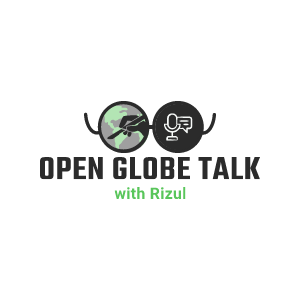April 11, 2022
Episode 22: Dr. Geoff C Tabin, MD MA
A discussion on
“Quality over Quantity: Compassionate Capitalism”
The Himalayan Cataract Project - Cure Blindness
Dr. Geoff C Tabin, MD MA
The first episode of season 2 premieres the much-awaited conversation with Dr. Geoff Tabin, MD who is the Fairweather Foundation Professor of Ophthalmology at Stanford University. Featured in the well-acclaimed book “Second Suns”, we walk through his journey partnering with the incredible Dr. Sanduk Ruit in founding the ‘Himalayan Cataract Project - Cure Blindness’.
Dr. Tabin did his undergraduate education from Yale University and went on to obtain a MA in Philosophy from Oxford University on the prestigious Marshall Scholarship. After completing medical school from Harvard University, he went on to train in ophthalmology at Brown. Following residency, Dr. Tabin completed a corneal surgery fellowship at Melbourne, Australia. It is our great pleasure that we learn from him his thoughts on global ophthalmology and how eyecare equity can be achieved on a global scale.
Key discussion points:
Gravitating towards Ophthalmology
Passion for rock-climbing
Interest in public health - equity in global health
Lure to curing blindness in Nepal where practice of lens implant was absent
Meeting with Dr. Sanduk Ruit
Connection through fellowship in Australia
Mentor: Dr. Hugh R Taylor
Dr. Fred Hollows: Training local systems
Dr. Ruit’s focus in Nepal: Human resource utilization and reducing cost in Kathmandu, Nepal
Compassionate Capitalism
The Journey
Dr. Tabin’s partnership with Dr. Ruit
Focusing on the academic side and hoping to arrange western fellowships
Starting a full residency and now full subspecialty fellowship in Nepal
What led to the success in Nepal?
Partnership and teamwork: creating a system where everyone thrives with high volume surgery
A combination of passion and care for fellow humans ingrained in the culture
Picking the best students out of the crop of medical graduates
Financial renumeration: ophthalmology became the most attractive field
Focus on quality led to quantity
Low-cost cataract surgery: Sustainability
Low cost lens factory in Nepal
Issue with manufacturing and distribution/marketing to meet the growing masses
Surgery kit: $11 for all reusables
Green impact
Dr. David Chang’s article on comparing waste between different institutes and countries (link in reference page)
Initiative at Stanford
Core principles to achieving sustainable care
Focus on quality
Replicating the same quality in the US to the poorest regions of the world
The dilemma of increased quality in developing nations
Dr. Norval Christy and moving towards the sustainability model of global ophthalmology
Attracting and retain global ophthalmology talents
Financial incentives to work locally in countries
Prospect can be grim in certain countries such as Sudan
In several African countries: ophthalmologists are on government salaries and other specialties such as pediatrics and medicine are more sought after.
Starting global ophthalmology training early in career
Focus on passions and letting them lead you to the essence and spirit of a true physician
Negotiating time over money
First global ophthalmology fellowship program in 2008 at the University of Utah
Idea of making this a major portion of your career
Stanford’s focus on global eyecare development
World is a very small place and we are actually more and more connected
“We still have a long way to rest. Don’t ration the passion!”- Dr. Tabin ‘Second Suns’
Future of global ophthalmology
Hope to see Africa going the same direction as Nepal, Bhutan, India in overcoming needless blindness
Seeing some really good ophthalmologists in Cambodia, Myanmar, etc.
The cost of treating people with needless blindness through cataracts and/or those with refractive error is $14 billion
Funding and attention to health disparities around the globe is within our reach but needs to be supported by the right people
Episode-based Resources:


